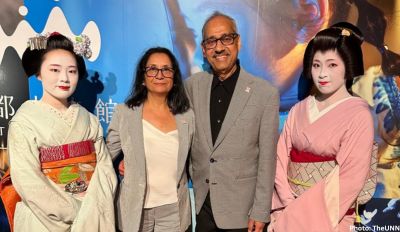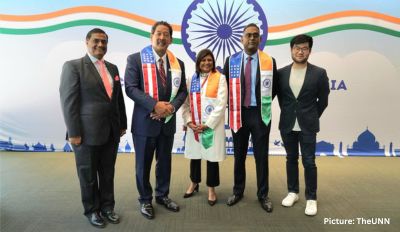There’s a house at the bottom of the cliffs. It’s in one of the settlements down under the hills of Arnos Vale, in the town of Calliaqua. The sand on the coast leading up to it is greyer than pebbles, and the shacks dotting the roads on its other side don’t look finished yet.
It’s not the most beautiful place. But the man with a moustache who lives there is a friend, and Father will never say no to a friend. Those are his strong values. They come from his family, the things only village life can teach: to be there for others no matter what. So, even though there’s an obese woman sitting outside on the stoop, wearing a dress that barely covers her body because there are other things her dollars need to buy, and seeing her intimidates him, Father goes into the settlements because he will do anything for the people who matter to him, especially when it’s the man’s birthday.
‘My good man,’ Father says. That’s his friend over there, Junior, standing on the other side of the hovel’s stoop, at the doorway to his own place, welcoming guests. Father gives him a handshake. ‘Happy birthday.’
‘My good man,’ Junior says, his eyes so happy to see Father that they are brimming. ‘Thank you for coming.’
‘There’s no need for thanks at all,’ Father says, and he means it. ‘It’s been long since you been telling me to come, and I never done come.’
They talk a handful of times every few years, maybe a total of eight or nine over the decades. For the first few years in the eighties, there wasn’t much between them. Father came to Junior’s store when he was done with his hospital stuff or on the way to do hospital stuff, and Junior sold him soda pop or bags of chips. Then they got to talking, and while they said nothing deep to each other, over the years that little bit of nothing grew to feel like it was building up to something. Some years after, they were already thinking of each other as friends.
But Father still rarely comes over to that side, and not just because Junior lives in these conditions. Father has just always been busy.
And he still is. But in a week, his mother will be coming to live with them, and Father knows he won’t have much spare time after hospital work for a while. It is a coincidence that Junior’s birthday invitation has come right around this time—and what better time to take his friendships seriously.
Inside the house, one side of the wall is violet. That is where Junior stands, welcoming his guests. The other side is just bricks, no paint over them, just some wood benches and stools for guests to sit. The benches are old and full of termites, but Father finds a stool he likes and sits. He’s the only one who has anything nice to wear. Father has come in one of the striped shirts Mother likes to gift him for his birthdays, and some dress pants he picked up in the nineties for some other event. The other guests are dressed in whatever they can afford: shirts and skirts with holes in them. The dust is all over their skin, layering in the curls of their hair.
They smile at Father like he is any other man to them. The small talk begins.
‘Hello, my good man,’ says one of the gentlemen with a cigarette in his hand. ‘What is your name?’
‘Name’s Elvis. Don’t be getting it confused with that American singer man.’
‘Let’s rock, let’s rock,’ shouts the man, doing a little shimmy. He has had a little bit too much to drink, and he’s holding more alcohol in his spare hand. Dizzied by his antics, he keels over a bit.
‘Now, now,’ one of the women says, sitting on the stool on Father’s other side, the braids in her hair coloured red. ‘Don’t be getting too excited. You’ll be giving all the little kids them crazy ideas.’
It’s too late. The kids are bopping and jumping, bumping into each other in excitement and tripping over themselves. There’s some reggae playing on the radio in the background. Some of the men are rolling up joints and smoking them. Father wonders if they are Junior’s cousins or nephews—the tarp-like quality of their skin and the greyness of their hairs make them look old, and yet their style of bantering is far too juvenile to be of that age.
A woman comes up to Father.
‘You must be the doctor Junior was telling about,’ she says.
Father smirks. ‘How do you know?’
The woman laughs like Father has said the silliest thing.
‘We’ve been living here for who knows how long, and you think we can’t recognise when someone not from here comes? Don’t be silly.’
Father laughs along with her. He’s from the capital of Kingstown, which is just around the corner from here and just a few blocks big. The moment a new face is seen on the street overlooking his house, he will know it. He knows exactly what she means.
The reggae has gotten louder. The singer mixes a bit of calypso smoothness into the music. The smoke of the weed and the cigarettes has dampened the air of the room.
The woman stands up and asks Father, ‘Doctor man, you in the mood for a dance?’
Father shakes his hands. The woman is giving him a bit of a naughty look, much like how the youngsters keep giving each other that sweet eye. ‘Missus I’m a married man. I don’t know how my wife would take to me dancing around like this.’
The woman seems to misinterpret the hand gesture, or at least she has chosen to do so. She pulls Father up from the bench, and soon their hands are interlocked. Father’s heart pangs for a second. He is imagining his wife busting in that very moment, slapping the woman, then taking him home, throwing things at him, and threatening to leave.
Then he returns to reality. The woman’s hands feel a little dusty but otherwise warm. The skin on the front is soft, like she has been putting on a lot of cocoa butter to hide the wrinkles brought about by age. Father looks at the woman more clearly. She’s in a flower dress, a bit of her cleavage shows, and she’s smelling like a good day’s sweat.
Really, all she wants to do is have a good time.
Father wants to have a good time, too. He lets the music straighten out the knots in his back. He closes his eyes, really listens to the lyrics. He feels his mind swaying away; he’s forgetting who he’s dancing with.
When he opens his eyes, the room is much more crowded. What had been seven or eight people now looks like thirty. Some are old, some are young, some are kids, some are probably the kids of the kids. But they’re all making room for themselves. The table is being pushed to the side, the glasses people were drinking out of scattered everywhere. The small room is becoming open. The music is getting louder.
Junior comes back into the house. He looks around and catches Father’s eye. He comes straight towards him.
‘I see you’re having a dance with the missus,’ he says and puts his hands over hers, where Father’s hands were. ‘May I have this dance?’
‘Oh,’ Father says. ‘So, this is Amelia.’
The woman laughs, confirming now, without a doubt, that she is Junior’s wife. ‘You silly goose. Who else you think I’d be?’
Father tries to puzzle an excuse together, but Junior has already pushed him out of the hands of his wife. They’re now dancing. Father fears he has offended his friend. He questions whether or not he should clarify that he had no intention to make a move on Junior’s wife.
But Junior is smiling and really getting into the dance, and Father has to remind himself that he’s taking things too seriously again. He sees one of the seventeen-year-olds dancing alone. Something unknowable lights up in him. Father decides to go up to the teen to imitate his moves. The kid is thrusting his pelvis in all sorts of ways. The moves tire Father, but he’s able to keep up.
Father hasn’t gone out and danced in decades. The last time must have been when he was fifteen or sixteen, around the age of this kid now. But when Father was fifteen or sixteen, he worried about how his brothers would act if they saw him dance, or what his classmates would say. It had been a sort of pastime among his friends to make fun of him no matter what he did, and he carried that with him over the years, even decades after, when no one from his village was even around to say this or that about him.
Where were they now?
‘Look at the doctor man dancing,’ Amelia says. The other adults in the room nod or murmur in approval. As if inspired by Father’s own lack of self-consciousness, a handful of older men and women join in, responding to the rhythmic thrusts of the music.
Eventually, the dancing stops. Someone comes up with a cake, and they all start singing the birthday song. People start going up to give Junior their wishes, and Father makes a mental note of his age. Junior is fifty now, almost a decade and a half younger than him. Father reminds himself that he’s nothing young, but he has made a good effort at the dancing. It seemed a lot of Junior’s guests really respected his moves. It makes him want to come back, this time with his wife in hand, to see how she’d react.
She’d realise her husband isn’t the stick in the mud she’s always making him out to be.
Father has some birthday cake and some of the Johnny cakes Amelia has made. Junior’s getting busy with his relatives, and Father feels like it’s time for an afternoon nap.
‘Thanks so much for inviting me,’ Father says.
‘You’re leaving already?’ Junior remarks. ‘We’re about to get out the beers.’
‘I’m not young like the lot of you,’ Father says. ‘It’s time for me to be taking my rest.’
‘And it’s rest you’ll be needing since your mother’s coming over soon. It’s no joke taking care of someone with dementia. You really have to be able to handle the responsibility.’
‘That’s right,’ Father says, feeling a little bit heavy in the eyes. ‘I forgot I told you about that.’
‘You tell me a lot of things in the store. You just keep forgetting them.’
‘That’s true,’ Father laughs. He has so many things on his mind that he’s surprised at half of the things Junior remembers.
‘Alright,’ Junior says. ‘Give my regards to Miss Molly. And to my auntie all the way from Port Elizabeth as well.’
‘I will,’ Father says. He reaches his hand out for a handshake, the same way he always does when he’s at the store.
Junior takes the hand like he always does, but suddenly something in Junior’s body language changes. He pulls Father in with that hand, wraps himself around him, and gives him a big hug.
‘Thanks so much for coming all the way down here,’ Junior says. ‘I know it’s out of the way.’
The hug lasts a little longer than what men usually give each other. Father really feels a part of Junior inside of it. As the hug breaks, Father looks at the faces of the people around him. He thinks about how all of them look more like the patients he sees on a daily basis in the hospital. He notices the dustiness of the interior, the bricks that haven’t been painted, the darkness of the room, the termites and ants eating it away.
He pulls himself away from the hug to look at Junior.
‘You don’t have to thank me for a single thing,’ Father says. ‘Thank you for inviting me. You’re a good man, one of the few I’ve met on this entire island. I hope you’ll be knowing that no matter what, we’re always going to be friends.’










